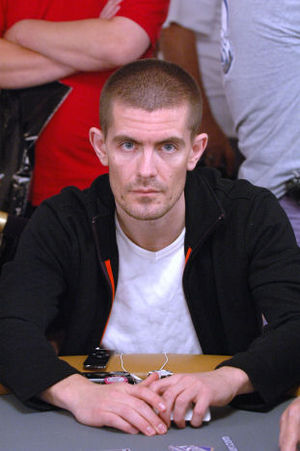![Cover of "Do the Right Thing [Blu-ray]"](http://ecx.images-amazon.com/images/I/51SJpuNUqmL._SL300_.jpg) Cover of Do the Right Thing [Blu-ray]Online Poker In The U.S.: Time To Do The Right Thing
Cover of Do the Right Thing [Blu-ray]Online Poker In The U.S.: Time To Do The Right ThingGiven the Full Tilt Poker disaster, I believe it will be more difficult than ever before to get the U.S. Congress to approve legalization. Never the less, I would love to see online poker be legal so millions of U.S. citizens can play poker anywhere and anytime via the internet.
I believe that the online poker companies should be aggressive in putting together a plan of what they will do to make sure that online poker is good for the U.S. economy, good for its citizens, is a fair game, prohibits underage gambling, and addresses problem gamblers.
Here are 11 areas that I would like online poker companies to promise to the U.S. Congress and poker players:
1. All companies must be headquartered in the U.S. to operate a legal online poker site in the U.S.
2. Jobs to operate online poker companies must include U.S. citizens in a similar percentage to the revenue anticipated from the U.S. poker players. If 70% of revenue is from U.S. poker players, then the online site must hire 70% of their total employees from the U.S.
3. No top executives, directors or major shareholders in online poker sites can have a criminal record.
4. Online poker companies must pay a U.S. tax rate that is similar to brick and mortar casinos.
5. Online poker companies must issue 1099's for all players that cash over $5,000.
6. The online poker industry must fund and create an independent agency to monitor their sites. This agency will have the power to penalize or shut down sites that do not adhere to the rules. The funding for the agency will come from an annual fee per online site based on total revenues.
7. The online poker sites must take adequate steps to prevent gambling by U.S. citizens under the age of 21.
8. There must be one universal poker dealing program that all sites use. This poker dealing program must be developed, tested and proven to replicate the randomness of live poker dealing. While each site will have its own design, format, promotions, etc., the dealing of poker hands must be fair and true to the game.
9. Online poker sites must identify the types of cheating that is possible by online players and agree to the best practices to try to prevent and stop these practices. Each poker site must have an internal group to audit the poker tables, investigate player complaints of cheating, and to act promptly.
Money lost by players due to cheating will be returned to players. The players caught cheating will be banned for life at all online poker sites. The names of these cheaters will be made public.
10. Online poker sites will not allow players to use online poker tools that provide data as to the betting habits and trends of individual poker players. This type of information is not available in a live poker game and will not be allowed online. Players caught using these online poker tools will be banned for life at all online poker sites.
11. Online poker sites must provide information to their players about responsible gambling and where to go if there is a problem. An online poker site can prohibit a player from continuing to participate on their site, if they perceive a player as a problem gambler.
I believe it is time for the online poker sites to take the initiative and go above and beyond what has been done in the past in order to get online poker legal in the U.S.
What do you think?






![Reblog this post [with Zemanta]](http://img.zemanta.com/reblog_e.png?x-id=1aba9dec-be18-4e2d-a199-df7857cb6163)

![Reblog this post [with Zemanta]](http://img.zemanta.com/reblog_e.png?x-id=1b881421-1e58-40e3-8082-8cccd4d02ba8)

![Reblog this post [with Zemanta]](http://img.zemanta.com/reblog_e.png?x-id=6cdd774b-1569-4309-b858-eded85a366a4)

![Reblog this post [with Zemanta]](http://img.zemanta.com/reblog_e.png?x-id=9a437e04-46fe-4c6e-bd65-46d041ef5ffc)

![Reblog this post [with Zemanta]](http://img.zemanta.com/reblog_e.png?x-id=d669382d-09f9-4b07-8ebc-8399a7137edf)

![Reblog this post [with Zemanta]](http://img.zemanta.com/reblog_e.png?x-id=667905f9-ae54-46a1-a283-40e053dacf60)

![Reblog this post [with Zemanta]](http://img.zemanta.com/reblog_e.png?x-id=aff180f1-13c1-47b0-a9be-2a7eb01d309c)

![Reblog this post [with Zemanta]](http://img.zemanta.com/reblog_e.png?x-id=68a81940-2aa3-4dc8-a398-abe00d4586df)







